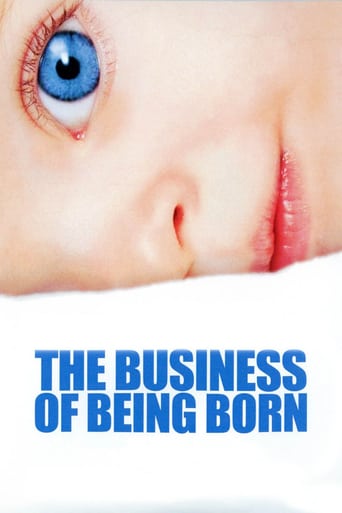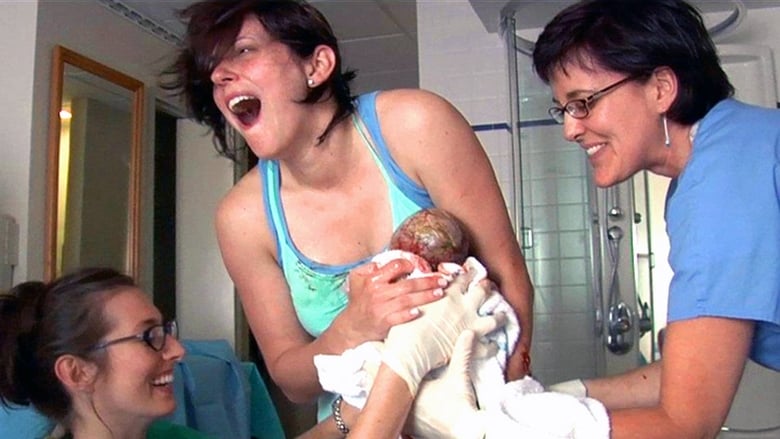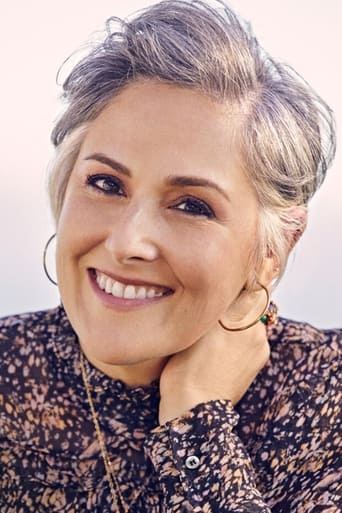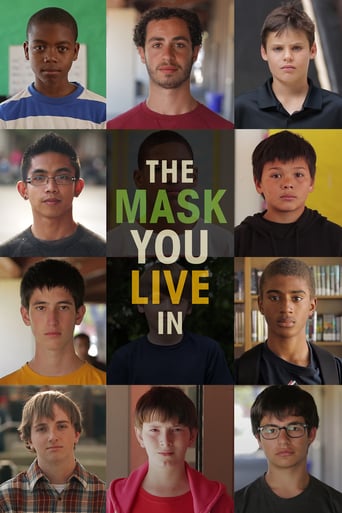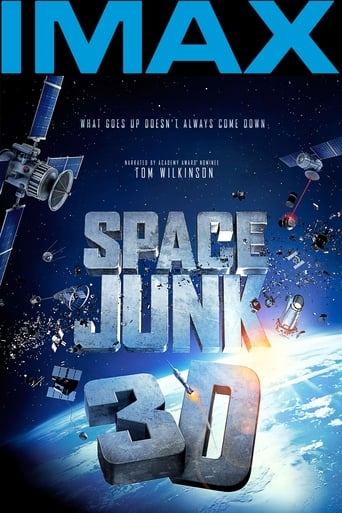The Business of Being Born (2008)
Birth: it's a miracle. A rite of passage. A natural part of life. But more than anything, birth is a business. Compelled to find answers after a disappointing birth experience with her first child, actress Ricki Lake recruits filmmaker Abby Epstein to explore the maternity care system in America
Watch Trailer
Free Trial Channels
Cast


Similar titles
Reviews
Very well executed
Fanciful, disturbing, and wildly original, it announces the arrival of a fresh, bold voice in American cinema.
Exactly the movie you think it is, but not the movie you want it to be.
The movie really just wants to entertain people.
The Business of Being Born is about birth procedure in the United States today, specifically regarding home births in contrast to hospital births. According to the documentary, these days 99% of births in the United States happen in hospitals. Most women don't even know about their options to have home births or even what a midwife is. Interviews with several birth specialists concluded that this is in fact a travesty, that the rushed, drug-infused deliveries that doctors are pushing on women these days is actually contributing to the United States having one of the highest infant and women mortality rates in any developed country in the world. Host, Ricki Lake and just about every person interviewed in the documentary really pushed women to consider natural home births with midwives. Obviously, this documentary was very biased towards one point of view. Regardless, it really got me thinking about birth and about the questions I should ask if and when I have a baby.The documentary showed four or five home births on camera. Sure, they were gross but what was nice about them was that they didn't look so frightening. Any time you see a birth scene in a movie, the woman is typically screaming her head off and many times complications arise and interventions are made. The home births made having a baby look like this super happy, empowering thing (and painful of course but I guess that goes without saying). The women were able to have their babies in their own homes on their own terms without having anyone make suggestions that they take drugs or induce.Of course there are times when those things are needed. I'm not trying to downplay the value of hospitals when it comes to having a baby. Hospitals can provide services that midwives cannot. I just think that it's good to at least think about. Assuming your pregnancy is low-risk, why not try it? I don't know about anyone else, but personally I don't really feel comfortable in hospitals.I'm a long way off from having to make these kinds of decisions. Who knows if and when I'll even have children. I'm glad I saw The Business of Being Born though. It gave me a lot to think about and really reminded me of the importance of doing research and developing your own birthing plan.
This documentary discusses a severely bias view of obstetrics and the medical side of birthing babies. While I don't completely disagree with some of the softer points made about the over-engineered process that takes place currently in North American Obstetrics wards, I found this film to be completely one-sided and quite presumptuous and almost cruel at some points.I must say that I was so turned-off by the incomplete, inequitable research done, that I turned the film off at one point. I felt a line was crossed when the film started to become so extreme as to say that c-section babies are not as loved by their mothers due to the lack of oxytocin that is released during the birthing process. Had the filmmakers chosen to dive into the lives of folks who had had c-section births, they would have found this to be a profoundly inaccurate and downright ignorant declaration. Perhaps my review of this film is biased, having given birth by c-section, and this caused me to be extremely offended by the film, for I felt that my love for my child was being debated.So while the film makes a few valid points regarding today's North American hospitals when it comes to labour and delivery, I would watch with a keen eye for insufficient research and unsupported arguments.
According to statistics, the infant mortality rate in the United States exceeds that of virtually every other nation in the industrialized world. The U.S. is also the only place in which far more women give birth in hospitals than at home under the care of a professional midwife. The documentary "The Business of Being Born" sees a connection between those two facts. Executive producer Ricki Lake first conceived of this film after she delivered her first baby in the hospital and then felt cheated of the potentially beautiful and meaningful experience a home birth might have provided. With the aid of director Abby Epstein, Lake has gathered together a group of women, couples, midwives and physicians who, through their own personal experiences and/or studies on the matter, help to provide evidence for her case that, for the large majority of women, delivering at home is preferable, on both a practical and spiritual level, to delivering in a hospital. Lake has even allowed herself to be filmed in the process of giving birth to her second child at home.This is an eye-opening and informative movie that admittedly provides really only one side to the issue. But it makes a pretty convincing case for that side and certainly gets the audience thinking. First, it offers a number of startling statistics, the prime one being that roughly one third of all babies born in America are now delivered through Caesarian Section, a procedure that is classified as "major surgery" but which is often treated with casual indifference by both physicians and patients (the shots of a Caesarian are far more "gruesome" than any of the shots of actual childbirth we are shown). The movie also recounts a brief but somewhat disturbing history of obstetrics practices in the United States during the past century when many women were put into "twilight sleep" and missed the birthing experience entirely. The movie also points out that, in a hospital setting, a "cascade of interventions" often prevents women from having the ultimate say in how they choose to deliver their babies. But the majority of the case is made through personal anecdotes from mothers and midwives concerning their own birthing experiences, as well as by the recording of many of those actual home births live on camera. Interestingly, after all the successful home births, the movie ends on one in which the child arrives prematurely and is in a breach position and thus must enter the world in a hospital room after all. It's an indication of the honesty and courage of the filmmakers that they didn't feel called upon to edit that sequence out of the movie.Yet, for the most part, the film takes the multi-billion dollar medical industry to task for being too quick to use drugs and a scalpel in the birthing experience. The movie also harshly criticizes the insurance industry for failing to recognize the much greater cost efficiency of home-birthing and hence refusing to cover it in their policies, thereby forcing many midwives to simply close up shop. In many ways, "The Business of Being Born" is fighting something of an uphill battle in that it appears counterintuitive - especially to a generation raised on the belief that the medical industry can do anything - to suggest that a birthing process with a physician and modern medical equipment on hand could actually be less safe than a birthing process without them (though the movie is quick to point out that the midwives are all state-certified and trained to deal with any unforeseen complications that might arise). Still, for women facing this decision - as well as for a society that for over a century now has frowned upon even the thought of natural childbirth - "The Business of Being Born" may serve as a paradigm-shifting event.
This movie is terrific. I had my doubts when I learned it was produced by and starring Ricki Lake, I admit. But it is sensitive, interesting, intellectual, captivating, and incredibly moving. It was not manipulative, but by the end, the entire audience was in tears.The most important thing about this film is that it shows the public what birth can be, for both the mother and baby. You see several homebirths, nothing too intimate (unless you consider the incredible post-birth high that somehow permeates the screen and affects the viewer, to be too close for comfort). No dilating vaginas or body fluids, sorry to disappoint. But what it does show is something that almost no one, especially not doctors (I am one), get to see. A natural birth with no intervention where things go right. Shocking! In my medical training, I attended hundreds of births. I probably saw one or two with no medical intervention in the hospital. My hospital birth was normal, with no problems, but I had interventions despite having told my OB (and mentor) that I didn't want any.It does not idealize birth per se, except by showing how simple birth can be without medicalization. But the volunteers of this midwife to be filmed were not excluded if there is a problem; one of the births requires transfer so you see how that is handled as well.The film educates people about the history of birth in this country, how things are done in other countries including Europe, and shows statistics about birth (there are more than they include in the medical literature) that will probably surprise a lot of people.I wouldn't say that the film is about Ricki Lake. She shows up here and there, and yes, she gives birth, but there are so many women followed here, and so many experts in birth interviewed.Dr. Michel Odent is one of them. He is a French OB/Gyn who attends homebirths. He has done considerable research on birthing, and has written multiple very intelligent books about it. He brings up the idea that when a rat or a monkey has an epidural or C/S, they will not bond with their babies. They will not breastfeed, they will not mother them, they do not care for them. There will be no natural hypothalamic oxytocin release, which causes a release of norepinephrine, dopamine, prolactin, serotonin, that prepares a woman not only to breastfeed but to bond. The oxytocin release in this situation will never be replicated, even if the women breastfeeds or does infant massage (which both do cause oxytocin release but not in the same amounts as if you start off with this kick-off). As breastfeeding lowers breast cancer rates in women in a dose related fashion, oxytocin release over time is associated with a certain calm, lower levels of stress, but actually is dose-related to lower levels of stroke and heart attack in the mothers. So it is a long-term benefit of natural birth. This is touched upon in the film, among many other interesting facts.It is not surprising to discover that doing things the way women are created to do them benefits both the mother and baby in so many different ways. Part of why this movie is so important is that it challenges the notion that man-made is better than the intricate design of man from God or evolution or however you want to approach it. Many people may not subscribe to it when it is stated like that, but in the food we eat, the we feed our babies, the way we grow our food, the chemicals we use in the environment, and the way we birth our babies, we are saying that every single day.Common sense says that man-made leaves a lot to be desired. Science is proving this every day, in research about omega-3 requirements in neurological and other conditions, in breastfeeding and oxytocin literature preventing cancer/heart attack and stroke, to the benefits of breastmilk for babies. This movie is a peek into how doing things as nature intended is BETTER.I don't feel I am exaggerating when I say that this is one of the most important films of these times for both men and women. Everyone should see it. You may not decide to have a homebirth afterwards, but you will walk out better educated about birth and what is happening in the hospital when you give birth.

